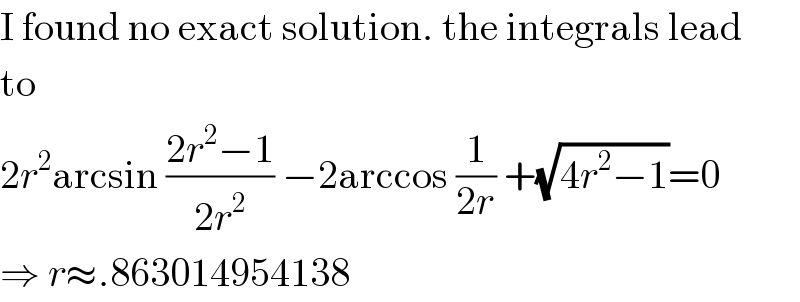
Question and Answers Forum
Question Number 80682 by ajfour last updated on 05/Feb/20

Commented by ajfour last updated on 05/Feb/20

Commented by ajfour last updated on 05/Feb/20

Commented by MJS last updated on 05/Feb/20

| ||
Question and Answers Forum | ||
Question Number 80682 by ajfour last updated on 05/Feb/20 | ||
 | ||
Commented by ajfour last updated on 05/Feb/20 | ||
 | ||
Commented by ajfour last updated on 05/Feb/20 | ||
 | ||
Commented by MJS last updated on 05/Feb/20 | ||
 | ||